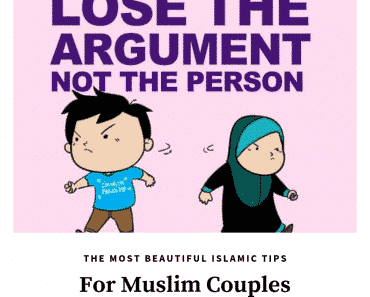Islamic Quotes on The Treatment of Non-Muslims: Islam is a religion of kindness for Muslims and non-Muslims alike. In the Quran, the Prophet is portrayed as merciful because of the message he gave to humanity:
Because Islam’s overall aim is to give full rights to non-Muslim populations, people of other religions have been accorded full civic rights under the Quran and Prophet Muhammad’s application (peace be upon him).
What Does Islam Say About Non-Muslims?
The following ahadith, quranic verses and events from the sunnah will give you idea of the respect and love that has been offered by Islam to non-Muslims.

10 – Humanity Above All
Anyone who learns about the prophetic message discovers that it upholds human dignity and elevates one’s standing, like all humans, Muslims or not, are descendants of Adam. Allah, the Almighty, praised humanity when he said:


9 – Treatment of Non-Muslims in Medina
The basic rules set by the Prophet at Madinah, where he founded a city-state, constituted a blueprint for how Muslims should behave with Christians, Jews, and other members of various religions.
Non-Muslim populations living within Muslim communities were granted a peaceful and prosperous life by ensuring security for both their lives and their property and were given the title of “ahl al-Dhimma,” which refers to people with whom Muslims have reached an agreement in which the Muslim state is responsible for their personal safety and property security.
The Prophet’s kindness was not limited to Muslims in any way. It included everyone, including Muslims and non-Muslims, people and Jinn, animals and non-living objects. Even those who had mistreated him or sought to murder him were shown kindness by him (peace and blessings be upon him).

Some of the most significant rules governing Prophet Muhammad’s (Peace be upon him) conduct of non-Muslims are as follows:
8 – Freedom fo Religion in Islam

Although Prophet Muhammad (Peace be upon him) and his companions thought that adopting Islam was the proper thing to do because it was the seal of the preceding revelations, they never sought to force anybody to do so.
Islam grants Non-Muslims religious freedom, but its tolerant legislation also protects their places of worship. Therefore, the Muslim caliphs issued orders to their military commanders who went on military expeditions to ensure this. The following is an example of Abu Bakr’s order to Usamah ibn Zayd:
‘I command you to do ten things: kill no woman, child, or elderly person; do not cut down fruit trees, vandalize homes, or wound a sheep or camel unless it is necessary to eat it; do not drown or burn a palm tree; do not be treacherous; do not be cowardly, and you will pass by people who have dedicated themselves to monastery life; leave them alone to their devotions’
7 – Justice for All
Prophet Muhammad heard the revelation. He put it into practice to the fullest extent possible, as he was told to treat everyone equally, regardless of rank, race, religion, or heritage. Even if the individual who possessed a specific privilege were unjust to the Muslims, he would still be granted that right.
The Noble Qur’an instructed the Messenger (Peace be upon him) in Al-Maida, 5: 42, if Ahl al-Ki tab (i.e., Jews and Christians) choose him as an arbiter then judge them equally. You should also review these Inspirational Islamic Quotes on Justice.

6 – Prophet Mohammad Forbade the Killing of Non-Muslims
Prophet (PBUH) emphasized the right of al-Mu’ahad (one who has made a covenant with the Muslims) in over thirty traditions, including the following:
Narrated by Abdullah ibne Amr in Al-Bukhari:

5 – Do Not Break Your Pacts with Non-Muslims
Reported by Abu Dawud:

Torture of any human being, Muslim or non-Muslim, was forbidden by the Prophet (Peace be upon him).
“Those who torment people in this life are tortured by Allah the Almighty,” he declares.
Non-Muslims’ lives, money, and prestige in the Islamic society were likewise safeguarded and guaranteed by Muhammad (Peace be upon him).
4 – Kindness Towards Non-Muslims
Muhammad’s (Peace be upon him) teachings left an essential concept, namely that a Muslim should treat everyone with respect, as he (Peace be upon him) said:

3 – Islamic Quote About Non-Muslims
Quran also mentions kindness in Al-Mumtahanah: 60: 8,

2 – Treatment of Non-Muslims by Prophet Mohammad PBUH
Many examples of the Prophet of Islam’s compassionate and tolerant coexistence with non-Muslims may be found in his life narrative. For example, non-Muslims were among his neighbors, and the Prophet was generous to them, exchanging presents.
According to Al-Bukhari, a Jewish lady gave him a sheep, which was subsequently discovered to be poisoned after eating some of it. The Prophet forgave her. When Bishr ibn Al-Bara’, who had also eaten from it, died later, the Jewish lady was murdered in his place.
According to Jabir ibn Hayyan:
“Until the burial of a Jew departed, the Prophet and his Companions stood up for it” (Sunan An-Nasa’i).
When they became ill, the Prophet of Islam would visit them and do business with them. He had a Jewish family to whom he routinely donated charity, and the Muslims continued to do so after his death.
Anas narrates the story:
“Once upon a time, a young Jewish lad used to serve the Prophet, but he fell ill. So the Prophet visited him. He sat near his head, pleading with him to accept Islam. Finally, the child turned to face his father, who was seated nearby. The latter advised him to follow the Prophet, and the little kid accepted Islam.
“All thanks are due to Allah, Who rescued the child from the fires of Hell,” the Prophet stated. (Al-Bukhari)
I would also recommend that you go through these 10 Most Beautiful Sunnah To Follow In Daily Life.
1 – Protection of Non-Muslims:
Non-Muslims have the right to be safeguarded in their honor. This privilege is granted to tourists as well as non-Muslim inhabitants. Therefore, they all have a right to feel safe and secure.
The Quran says:

Then deliver him to his place of safety.

Umm Hani, one of the Prophet’s female companions, remarked to him:
“Messenger of God, my brother Ali claims to be at war with a fellow called Ibn Hubayra, to whom I have provided shelter.”
The Prophet responded:
“Anyone you’ve granted shelter to, O Umm Hani, is protected by all of us.”
From the beginning of time till today, Muslim scholars’ writings and the acts of numerous Muslim monarchs illustrate Islamic dedication. Because generosity begins at home, a Muslim, whether a born Muslim or a new Muslim, should treat his peers fairly and courteously, mainly if they are relatives or neighbors.






